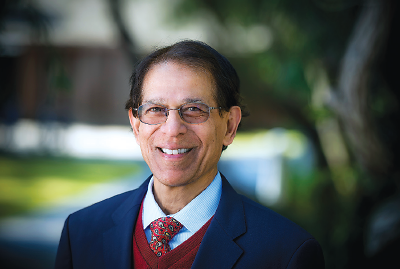Purpose in Life Linked to Physical Function in Older Adults
Abstract
A job or career can be the defining identity for many people so that finding a purpose in life upon retirement can be challenging—especially for physicians.
A sense of purpose in life appears to be associated with objective measures of physical function in individuals over 50 years of age, according to a report published August 16 in JAMA Psychiatry.

The study adds to a growing literature supporting the role of psychological strengths such as resilience and purpose in health and illness and supports the idea that clinicians should discuss purpose of life with their older patients.
Eric Kim, Ph.D., of the Harvard T.H. Chan School of Public Health and colleagues analyzed data from the Health and Retirement Study, an ongoing nationally representative study of U.S. adults older than 50 years, at two points—2006 and 2010. Purpose in life was assessed in 2006 using the seven-item Purpose in Life subscale of the Ryff Psychological Well-Being Scales, in which respondents rate the degree to which they agree with a statement (for example, “Some people wander aimlessly through life, but I am not one of them”) on a six-point Likert Scale. At both time points (2006 and 2010) hand grip strength and walking speed were assessed using standard protocols and measurement tools.
The researchers found that a higher baseline purpose in life was associated with decreased risk of developing slow walking speed during four years of follow-up and small increases in walking speed among people with high purpose. Higher purpose was also associated with increases in grip strength but was less robustly associated with decreased risk of developing weak grip strength.
“Although mechanisms that explain the potential health effects of purpose have not yet been clearly defined, there are likely indirect (such as other health-related behaviors) and/or direct effects (such as altered biological function),” Kim and colleagues wrote. “For example, people with higher purpose are more proactive in taking care of their health, have better impulse control, and engage in healthier activities.”
In an editorial accompanying the JAMA Psychiatry article, Carol D. Ryff, Ph.D., of the University of Wisconsin noted that it is only relatively recently that resilience and its protective potential in mental health has become a major focus of psychiatric research.
“One such strength is purpose in life, which was first formulated from the life experiences of Victor Frankl, who spent three years in a Nazi concentration camp,” Ryff wrote. “He saw purpose in life as having life-saving features and went on to develop a form of psychotherapy based on it. … Since then, more than 500 publications have grown up around this model of well-being.”
Ryff asks, How does purpose help to make individuals healthier? “One possibility is that older adults with higher levels of purposeful engagement are more physically active in their daily lives, that is, they get up and do things every day,” she wrote. “Thus, more detailed assessments of daily activities, possibly motivated by goals and objectives that constitute reported life purposes, might illuminate how physical functioning capacities remain vital among some older adults. Growing intervention studies show that psychological well-being is modifiable, that it is not trait-like but can be enhanced (or diminished) by environmental inputs. This reality points to new possibilities for improving later-life health by nurturing change in the direction of more purposeful life engagement. These ideas are worth considering. Leading a life of purpose not only feels good and meaningful, existentially speaking, it may also be an area of rich potential in which intervention studies and public health education programs might contribute to improved health of our ever-growing aged population.”

Past APA President Dilip Jeste, M.D., says that physicians may find it especially challenging to find a purpose in life after retirement since physicians see their career as a calling.
Past APA President Dilip Jeste, M.D., director of the UC San Diego Center for Healthy Aging, has been a leader and pioneer in what has come to be known as “positive psychiatry.”
In an interview with Psychiatric News, he said the results of the JAMA Psychiatry study are supportive of a large body of research emerging in the last decade showing an association between psychological well-being and measures of physical health.
Similarly, he referred to the findings linking speed of walking and hand grip to biological age. “These two discrete measures have come to be regarded as a shorthand for biological age, a clinical marker for aging,” he said.
Finding meaning and purpose in life is especially critical—and can be challenging—for adults who have retired from jobs that for years may have served as their identity. This can be especially true for retiring physicians who regard their career in medicine as a calling.
“There’s no single answer to the purpose of life, and it will be different for different people,” Jeste told Psychiatric News. “Clinicians can help with this task and should ask their older patients, ‘What’s your purpose in life?’ because patients may not bring the subject up themselves.” ■
“Association Between Purpose in Life and Objective Measures of Physical Function in Older Adults” can be accessed here. The accompanying editorial is available here. Jeste is the editor of Positive Psychiatry: A Clinical Handbook, which APA members can purchase at a discount.



